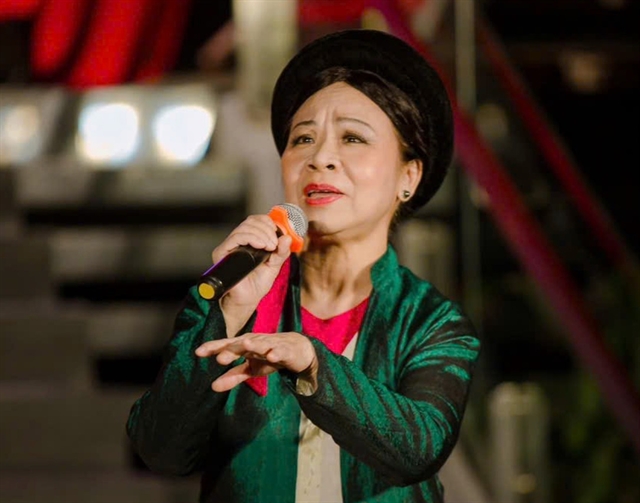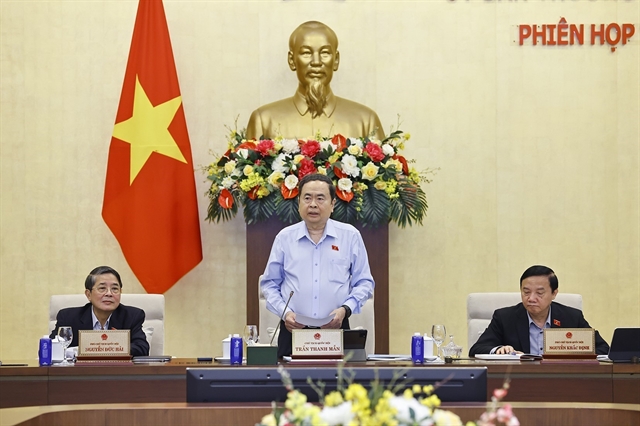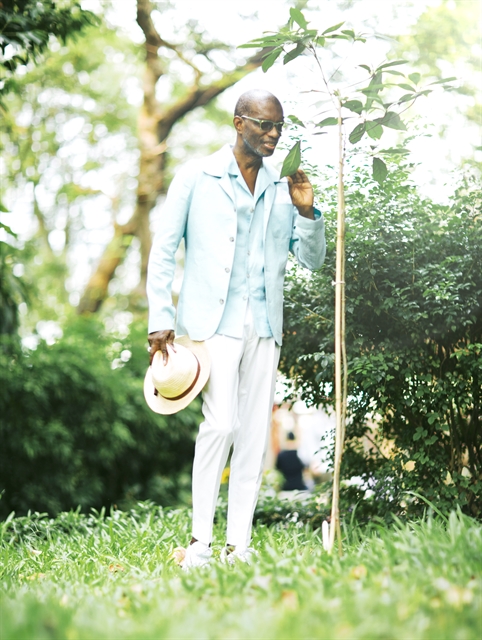 Inner Sanctum
Inner Sanctum

An ambassador for Global Wellness Day Vietnam since 2018, Henri Hubert, director of Le Nom Group, a visual communication agency, believes that good health and a good spirit can help convey the true beauty of life.

|
| Henri Hubert, ambassador for Global Wellness Day Vietnam |
An ambassador for Global Wellness Day Vietnam since 2018, Henri Hubert, director of Le Nom Group, a visual communication agency, believes that good health and a good spirit can help convey the true beauty of life.
Hubert speaks to Việt Nam News reporter Bồ Xuân Hiệp about how to maintain a healthy lifestyle, spread love to the community, and work together for a healthy living environment amid the Covid-19 pandemic on the occasion of Global Wellness Day Vietnam on June 12.
Inner Sanctum: Could you tell us about the Global Wellness Day event?
Global Wellness Day, a non-profit day event and a social project dedicated to living well, is organised on the second Saturday of June every year internationally.
First held in 2012 in Turkey, the event has become popular worldwide. With the slogan “One day can change your whole life”, the event aims to help people start living well.
I think modern life is all about the hustle and bustle, making people rush to eat, hurry to work, meet deadlines and so on.
The pressure from work, family and life has caused people to suffer, for example, from depression, which affects millions of people worldwide.
People sometimes don’t remember the last time they breathed fresh air, ate a nutritious meal, or enjoyed a peaceful moment with their loved ones.
When mentally tired and depressed, people tend to turn cold to everyone around them. Ask yourself, “How long has it been since you actively helped others?”
Do you realise how quickly the products you purchase are delivered to you? The convenience is accompanied by disposable plastic containers being discharged constantly into the environment, causing serious pollution, damaging humans’ health, and resulting in severe diseases.
The cost of waste processing and medical treatment has become a serious social burden.
Recognising these problems, our mission at Global Wellness Day is to educate, support and empower people and the community so as to improve and maintain their overall health and well-being.
By encouraging such healthy lifestyle choices, we want to promote a culture of wellness all across the Vietnamese community.
Our goal focuses on encouraging everyone to participate in the wellness programmes we are working hard on and have a long-term commitment not only to these events but also to a healthier lifestyle.
More than 160 countries will be celebrating the Global Wellness Day with a range of activities on June 12.
Inner Sanctum: How can we maintain health amid the COVID-19 pandemic which has affected us both mentally and physically because of travel restrictions and lockdown measures?
It is absolutely natural for any of us to feel stressed, anxious and lonely during this time. The World Health Organization (WHO) said the consequences of Covid-19 on our mental, physical and psychological well-being have been very negative.
Physical health and mental health are inseparable. Together they form a balance that represents a person’s general state of health. According to the WHO, “Health is a state of complete physical, mental and social well-being, and is not just the absence of disease or infirmity.”
Mental health is therefore the basis of an individual’s well-being and will fundamentally determine a person’s ability to function and deal with the problems of everyday life. Mental health also depends a lot on a person’s physical state of health, and vice versa.
It is important to recognise the value of our lives, pause and think, be free from the stress of city life and bad habits, make peace with ourselves, raise awareness about living well, and increase motivation.
Inner Sanctum: What wellness recommendations would you like to spread to the community?
I believe true beauty is rooted in the way we live and think and a healthy body.
As you may have noticed, people seem to take care of themselves only when they are really sick, or when they think they are losing or gaining weight. It’s almost a default of the human race. However, precautionary measures are absolutely necessary.
On how to take care of oneself, I personally think the mind is the basis, so maybe you should try to surround yourself with positive people who always have a smile on their face and get rid of stress as well as the people who cause it.
In my view, big ideas really stem from the smallest actions. Long-term habits for us to live better must be done step by step.
Let’s adopt simple activities every day to maintain a good lifestyle and protect the environment such as walking for an hour, drinking more water, avoiding plastic bottles, eating healthy food, doing a good deed, having dinner with your loved ones, and going to bed early.
The most important thing is self-discipline. We all know what to do. Talking is easy, but committing is another story. It all boils down to what you actually do for yourself.
This year, we have an elaborate programme in Việt Nam. We have planned a range of activities, including dinners, lunches, meetings, workshops, and physical and intellectual activities prior to the official event on June 12.
We will continue our activities until December with the focus on the Wellness Gala Dinner.
Inner Sanctum: What should be done to raise people’s awareness about well-being amid the pandemic?
It is interesting how the pandemic, a heartbreaking disaster, has been creating a sense of urgency around the world, and thus increasing the need for awareness of well-being.
Wellness insiders, donors and healthcare workers around the world are trying to improve the effectiveness of communication, raising public awareness and educating people about wellness-related issues.
We need help from everyone and every institution, including families, schools and companies, especially the media and advertising campaigns.
As the workload is colossal, it will be necessary to form teams or units with specialists and responsible people who can work together to strengthen public awareness and training campaigns.
I think they can design a space, for example, a website where they can share the results, their experiences and perspectives. The site can be used to pool resources allocated for scientific research or initiatives to raise awareness, and to build knowledge based on what works and what doesn’t.
The team can work together to create communication standards, public awareness assessment, and training in welfare-related topics. VNS




